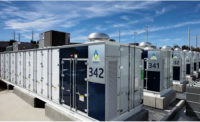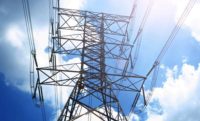The European Commission has OK'ed a key portion of financing for the $932-million ELMED electrical interconnection project that will link the grids of Tunisia and Italy—enabling a bidirectional power flow between Africa and Europe via a 200-km undersea cable for the first time.
The commission signed a $337-million grant agreement Aug. 8 with Italian electricity grid operator Terna and STEG, the Tunisian electricity and gas company, for construction of the 600-MW high-voltage direct current cable that will link the existing electrical substation in Partanna, Sicily and a new substation in Menzel Temime, located on Tunisia's northeast coast.
The cable will be buried at a maximum depth of approximately 800 m along the Strait of Sicily, according to a project brief by ELMED Etudes Sarl, the joint venture of Terna and STEG that is implementing the project.
Officials said the project seeks to achieve security and sustainability for Europe's power supply for Europe and boost efforts to integrate renewable energy to eventually replace its gas-fired thermal generation.
The commission grant will be channeled through the Connecting Europe Facility, a fund created by the European Union to finance development of key projects to optimize EU energy infrastructure. This is the first time its funding has been allocated to an infrastructure project developed by an EU member and an African country.
 The Partanna electrical substation in Trapani, Sicily, will be tied in to the ELMED transmission line.
The Partanna electrical substation in Trapani, Sicily, will be tied in to the ELMED transmission line.Photo Courtesy ELMED
The ELMED project has also obtained $268.4 million in financing from the World Bank, specifically to build an AC/DC converter station in Mlaabi, a municipality in Tunisia’s Cap Bon area. and to support construction of a double-circuit 400-kV link between the station and Tunisia’s bulk transmission system at the 400-kV substation at Mornaguia.
“ELMED will enable the development of renewable energy and, at the same time, deliver economic and industrial benefits, attracting investment and creating new jobs,” said Terna CEO Giuseppina Di Foggia in a statement.
The subsea cable will extend 18 km from its landing point in Sicily to the Partanna converter station, and in Tunisia, it will extend 6 km from its landing point to the new converter station in Mlaabi.
Project procurement began in May 2023, with construction expected to begin in 2024 and complete in 2028, according to ELMED. Italy’s RINA Consulting and Tunisia’s COMETE Engineering recently were awarded contracts for the link’s marine feasibility study. Nigeria’s Colenco Consulting and Indonesia’s Pt Kwarsa Hexagon have been selected as preferred contractors for project terrestrial and marine feasibility studies.
Italian management and engineering firm Proger, in a joint venture with HPC—along with IDEA Consult, ELARD and Plexus Energy already completed in 2021 the project's environmental and social impact assessment studies and a resettlement action plan.
Project officials say that when work finishes in 2028, Italy and the North Africa region will be able to diversity power sources and expand renewable energy investment.
The EU says expanded cross-border interconnection of energy infrastructure is “a key enabler for the European Green Deal, as it makes it easier to integrate more renewable energy into the grid.”
In addtion to the ELMED link to Tunisia. Italy has existing cross-border transmission lines to France, Greece, Switzerland, Austria, as well as the Sardinia-Corsica-Italy high-voltage, direct current interconnection.




Post a comment to this article
Report Abusive Comment